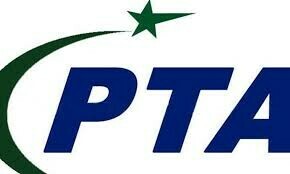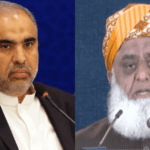KARACHI: The regulator of the telecom industry informed the Sindh High Court on Tuesday that the Pakistan Telecommunication Authority (PTA) had blacklisted over 1.25 million URLs due to objectionable material.
In response to a petition against the uploading of “objectionable, unethical, immoral, and unlawful” content on social media sites, the authority filed a reply.
Out of the 1,253,522 blocked URLs, the regulator informed the SHC that 988,659 were blocked for offensive and immoral content, 90,980 for content disparaging Islam, 84,130 for content undermining national security and defense, 52,787 for disseminating hate speech and sectarianism, 10, 363 for defamation and impersonation, 10,252 for being proxies, 9,366 for other reasons, and 6,985 URLs for contempt of court.
The PTA broke down the prohibited URLs and found that 139,415 were Facebook links, 98,597 were from Tiktok, 50,975 were from YouTube, 18,123 were from Instagram, 5,184 were from Snackvideo, 4,285 were from Bigo and Linkee, 550 were from Dailymotion, and 887,435 were unrelated.
The telecom regulator describes link blocking as a “continuous exercise.”
The regulator informed SHC that it was keeping track of about 1.34 million URLs, of which more than 71,722 were still reachable, and that requests to block 16,122 of those URLs had been turned down.
It was “an ongoing exercise” because the URLs need to be regularly validated and re-confirmed in order to maintain the database updated.
Following its inclusion as a respondent in a petition filed by a few YouTube content providers, who claimed that unpleasant, unethical, immoral, and illegal content was being posted on social media platforms, the PTA filed its response.
Tuesday’s hearing was continued by a two-judge SHC bench led by Chief Justice Aqeel Ahmed Abbasi, who also gave the petitioners’ attorney a copy of the regulator’s response.
The authority said that it had restricted the URLs for YouTube and Instagram in relation to the petition in question as required by Section 37(1) of the Prevention of Electronic Crimes Act, 2016.
PTA is able to “remove or block or issue directions for removal or blocking of access to an information through any information system if it considers it necessary in the interest of the glory of Islam or the integrity, security or defense of Pakistan or any part thereof, public order, decency or morality, or in relation to contempt of court or the commission of or incitement to an offence under this Act,” according to the aforementioned section titled “Unlawful online content.”
The PTA also questioned the petition’s maintainability, arguing that the petitioners had no justification for filing it because they had not contacted the PTA with their concerns. According to PTA, the petitioners failed to give the authority with the precise URLs of the problematic content, despite the authority’s request.
A deputy attorney general later asked for extra time to get instructions from the remaining respondents, the director of the FIA’s cybercrime wing and zonal directors, to file comments, and as a result, the hearing was postponed until May 15.
The PTA was instructed by the SHC at a previous hearing to uphold applicable laws and regulations in order to stop and delete offensive content from appearing on social media sites.
Usman Farooq, the petitioners’ attorney, said that PTA was authorized by the Prevention of Electronic Crime Act, 2016 and the Removal and Blocking of Unlawful Online Content Rules, 2021 to remove and take appropriate action in relation to offensive and illegal content.
He insisted, meanwhile, that the authorities were not acting quickly, and he requested that the SHC issue orders to filter offensive material.
Mr. Farooq further claimed that offensive content was against Islamic teachings in addition to negatively impacting social and cultural norms and values.








